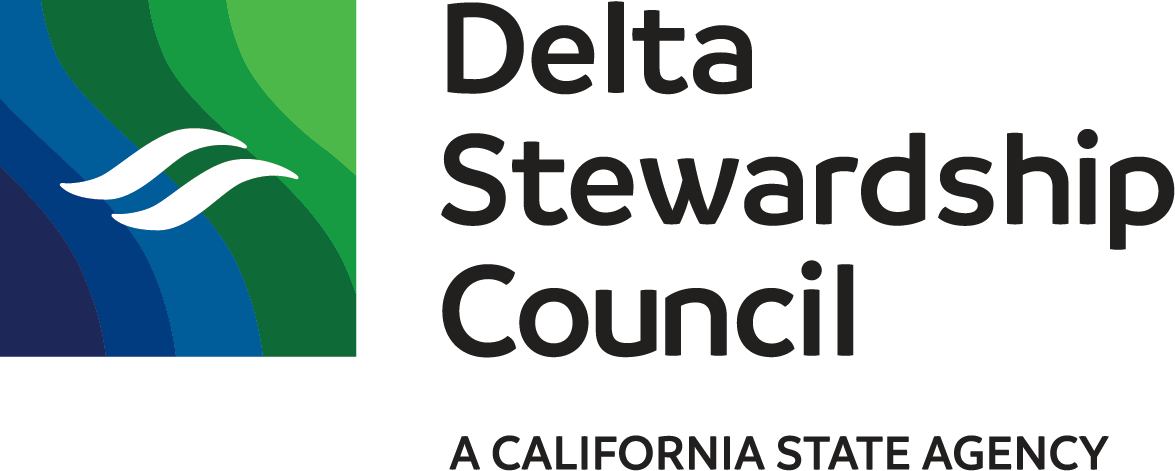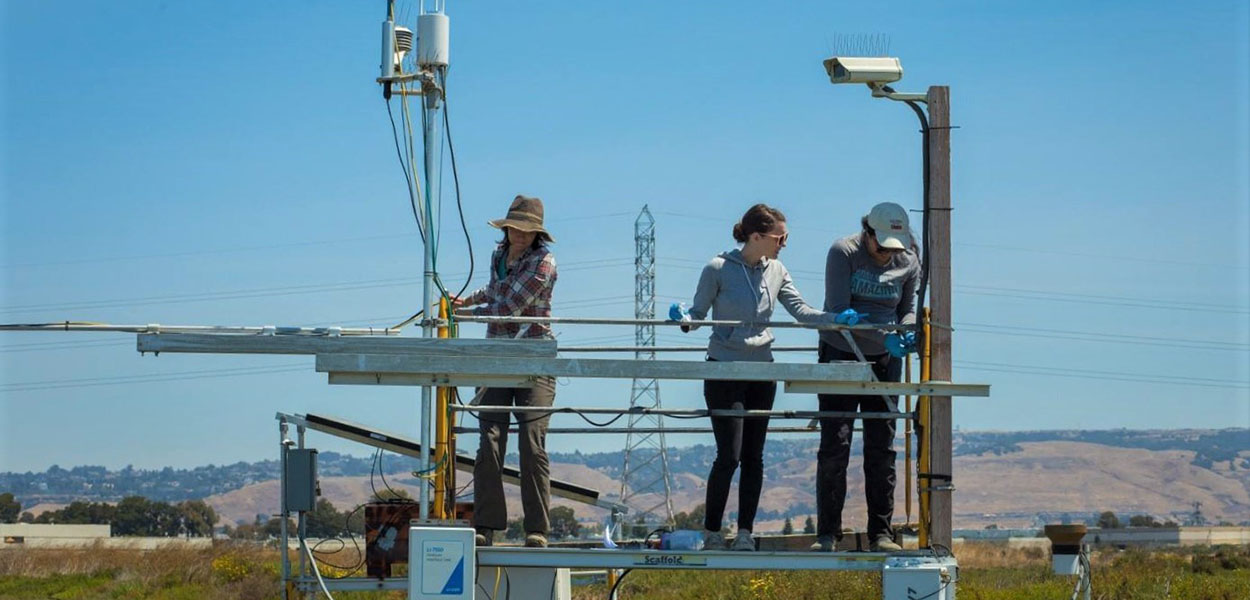
One of the projects funded by the Delta Stewardship Council’s recent joint research solicitation will produce the first ever, multi-year data set of the complete carbon budget of a Bay-Delta tidal marsh. Funding for these studies will help fill knowledge gaps in Delta science and inform critical management decisions in the Delta. Photo: Patty Oikawa
From Climate Change to Ecosystem Restoration: State, Federal Agencies Provide Critical Funding for New Delta Science Investigations
May 13, 2019
By John Callaway, Louise Conrad, and Dylan Stern
When the Delta Stewardship Council approved nearly $10 million for scientific research last month, it marked the first large, multi-agency, competitive Delta science research solicitation in close to a decade.
The Council, the California Department of Fish and Wildlife, and the U.S. Bureau of Reclamation combined funds from each of their agencies last fall to issue a solicitation for new Delta science studies, attracting 62 proposals requesting a whopping $43 million in funding. After a rigorous, multi-step review process that included nationally recognized subject matter experts as well as leading scientists in the Delta, the Delta Science Program identified 15 projects that will receive a total of nearly $10 million in funding from the Council and Reclamation, with an additional $7 million in funding expected to be allocated by CDFW in the coming weeks.
Proposals were selected for funding based on their scientific merit, whether they address essential knowledge gaps in Delta science, and for their potential to inform critical management decisions in the Delta. The latter is especially significant because there is no pause button for resource managers to press while they make decisions about land, wildlife, and water resources in the Delta. Moreover, the suite of funded research projects will enhance the science available to managers and policy advisors for resource management.
Collectively, these new projects are intended to advance our knowledge of climate change, habitat restoration, food webs, native fish, aquatic vegetation, water quality, levees, and recreation in the Delta. All of the projects are responsive to one or more Delta science priority areas listed in the 2017-2021 Science Action Agenda:
- Increase investigations of the human dimensions and the impacts of natural resources management decisions
- Enhance science synthesis, or the integration of currently disparate data and information to fully address a management topic
- Research to support and evaluate habitat restoration
- Research to understand interactions between environmental stressors and managed species and their communities
- Modernize monitoring, data, management, and modeling
The five priority areas outlined in the Science Action Agenda are the result of a multi-year, multiagency effort to identify, prioritize, and address the critical science and management needs in the Delta. The Agenda is also the cornerstone of the shared One Delta, One Science vision of a Delta science community that works together to build a common body of scientific knowledge.
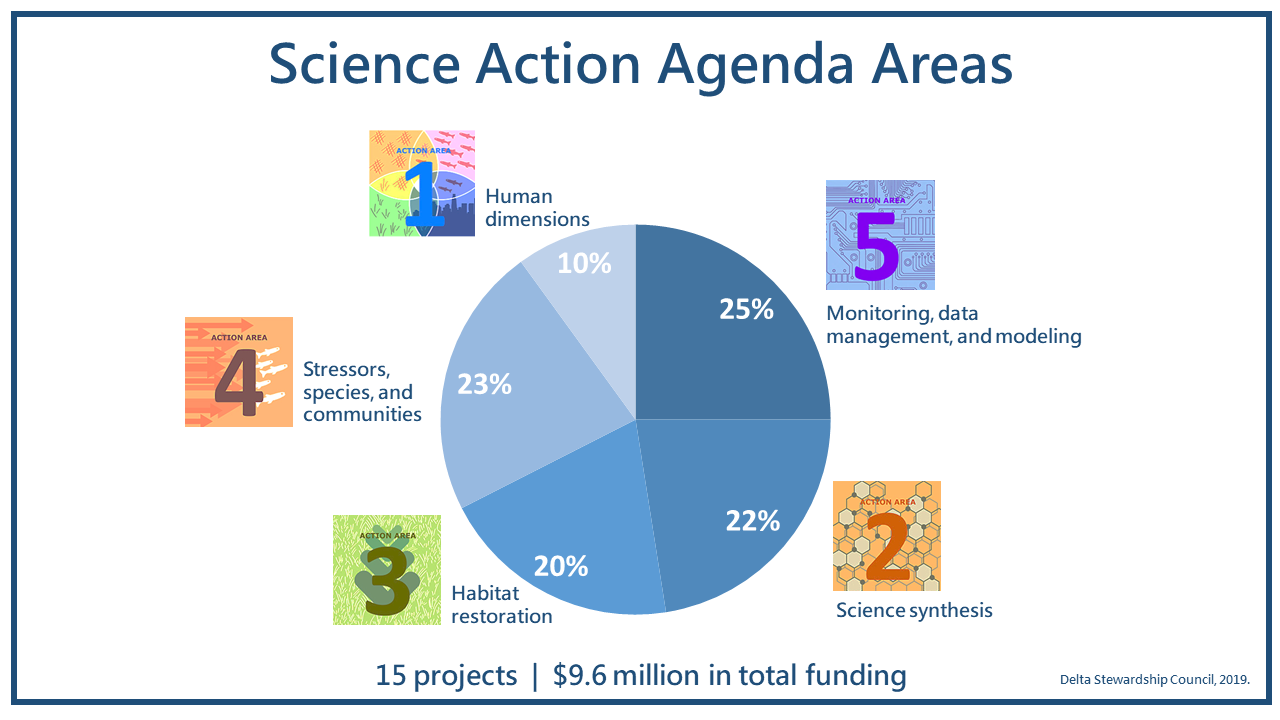
It is important to point out that, unlike the majority of Delta science funding, these awards are for scientific research and synthesis – not monitoring. The value of continuous monitoring to understand changes in the Delta cannot be overstated; however, there is a critical need for new and novel investigations and synthesis of existing data. When combined with ongoing monitoring efforts, this new research will help us understand human uses of the Delta, ecosystem dynamics, and potential ecosystem responses to climate change and major management actions such as habitat restoration and wastewater treatment plant upgrades.
The last call for competitive research proposals of this type was in 2010. That effort demonstrated the tremendous value of bringing fresh perspectives, approaches, and expertise to the Delta science community. Usable science to inform and develop the Chinook Salmon Life Cycle Model and the Delta Smelt Resiliency Strategy, new computational models linking climate, water movement, and food webs, and the completion of more than 70 peer-reviewed papers are just a few examples of how these projects continue to improve understanding and inform management in the Delta today.
While this particular joint proposal solicitation is an enormous accomplishment for the Delta Stewardship Council and for our agency partners, we must prioritize long-term, reliable funding for science so that we can offer consistent opportunities for innovative Delta research. We are committed to ensuring that the next large, multi-agency solicitation will come much sooner than a decade. We look forward to collaborating with local, state, and federal agencies in the future to advance the next-generation of Delta science research and researchers.
To learn more about the Delta science proposal solicitation and see the details of selected projects, click here.
About the Authors
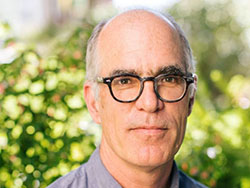
About Delta Lead Scientist John Callaway
John Callaway is the Lead Scientist for the Delta Stewardship Council and the Delta Science Program. An internationally recognized expert in wetland restoration, specifically wetland plant ecology and sediment dynamics, he most recently directed the Environmental Management Master’s Program at the University of San Francisco, where he also teaches undergraduate and graduate courses. He is a member of the Board of Directors of the San Francisco Estuary Institute and has served on a number of advisory panels on wetland management issues including for projects in Louisiana, Venice Lagoon (Italy), San Francisco Bay, and Southern California. Callaway holds a bachelor’s degree from UC Berkeley and a master’s degree from San Francisco State University, both in biology. He earned a Ph.D. in oceanography and coastal sciences from Louisiana State University. When he is not working, Callaway and his wife enjoy biking, hiking, and canoeing throughout California.
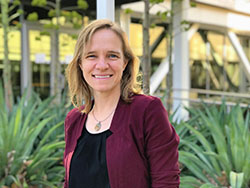
About Deputy Executive Officer for Science Louise Conrad
Louise Conrad is the Deputy Executive Officer of Science for the Delta Stewardship Council’s Delta Science Program. Conrad previously served as a program manager for estuarine science and synthesis at the California Department of Water Resources (DWR), where she focused on applied science to understand major stressors to the Delta in support of management efforts, including the California Natural Resources Agency’s Delta Smelt Resiliency Strategy. Prior to joining DWR, Conrad was a postdoctoral scholar at UC Davis where she studied the impacts of invasive weeds and Largemouth Bass on the Delta ecosystem. Conrad holds a Ph.D. in animal behavior from UC Davis.
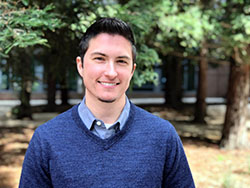
About Senior Environmental Scientist Dylan Stern
Dylan Stern is a senior environmental scientist with the Delta Science Program, part of the Delta Stewardship Council, where he has worked since 2015. A proud civil service scientist, he is particularly interested in the complex intersection of water quality, ecology, and water supply in the Delta. Stern holds a master's in environmental science and management from UC Santa Barbara and a bachelor’s in environmental science from California State University, Chico. He was previously an environmental scientist at Tetra Tech and a staff scientist at Bachand & Associates.

